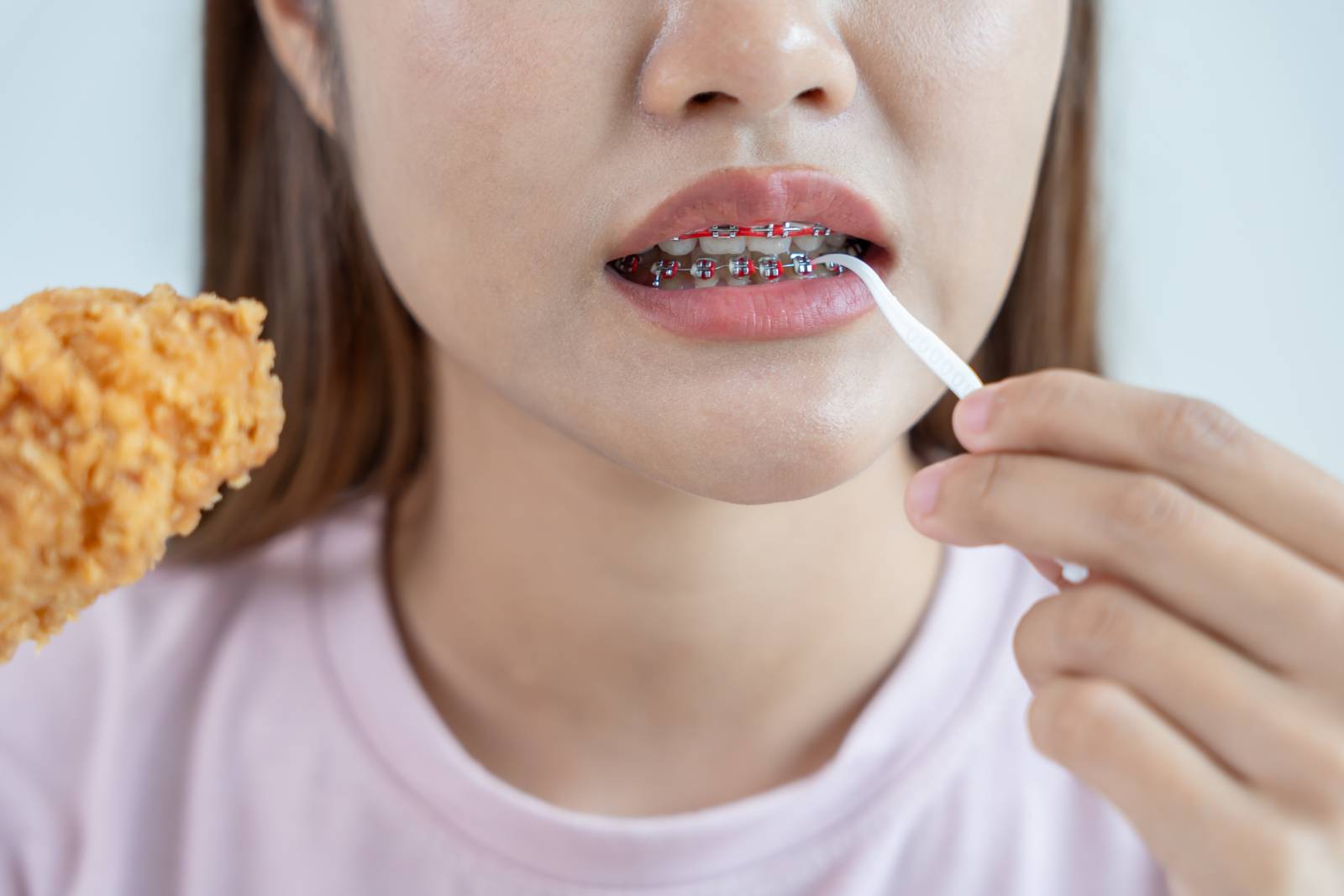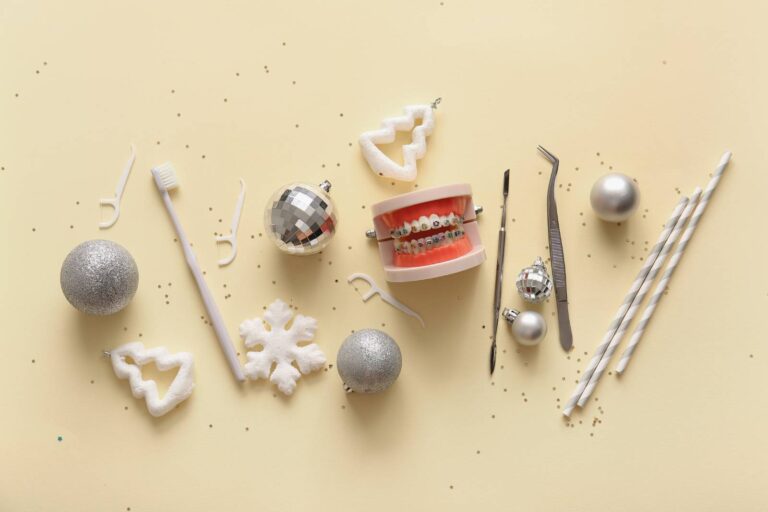Everyday Challenges with Braces
Wearing braces is one of the most effective ways to build a healthier, straighter smile. But along the way, patients often discover that treatment comes with small challenges. A piece of food caught in the brackets, a wire that suddenly pokes the cheek, or a bracket that feels loose can turn a normal day into an uncomfortable one.
These moments can feel stressful, especially for younger patients at school or adults in social settings. The good news is that most issues with braces are common, minor, and can be easily managed at home until the next orthodontic appointment. With preparation and a little know-how, patients can handle these situations calmly while keeping treatment on track.
Why Braces Problems Happen
Braces use brackets, wires, and elastics to move teeth gradually into their proper positions. While these parts are strong, they are not indestructible. Daily chewing forces, sticky or crunchy foods, and even minor bumps to the mouth can put stress on the appliance.
Common triggers include:
- Eating sticky candies, gum, or caramel
- Biting directly into hard foods like apples or nuts
- Chewing ice or hard snacks
- Sports injuries without a mouthguard
These issues are not failures of treatment but normal side effects of wearing braces. Knowing why they happen makes them less alarming when they occur.
Food Getting Stuck
Food debris is one of the most frequent frustrations with braces. Tiny gaps around brackets and wires are perfect traps for bits of food, which can feel uncomfortable and even embarrassing in social settings. More importantly, trapped food encourages plaque buildup, gum irritation, and potential cavities if not cleaned away.
Strong hygiene habits help prevent problems before they start. Brushing after meals, flossing daily with a floss threader or orthodontic flosser, and rinsing with water are simple but powerful tools for keeping braces clean. Interdental brushes and water flossers provide extra help for stubborn spots. Patients who maintain these habits not only stay more comfortable but also protect the health of their teeth and gums throughout treatment.
Common Braces Concerns
Food stuck in braces is only one of several issues patients may face. Others include:
- Loose brackets: These often occur after eating sticky or crunchy foods. While inconvenient, they usually do not cause pain and can be repaired at the next appointment.
- Poking wires: As teeth shift, wires may move and irritate the cheeks or lips. Orthodontic wax placed on the end provides quick relief.
- Lost elastics or ligatures: The small rubber bands that hold wires in place sometimes come off but can easily be replaced during a scheduled visit.
These concerns are common and rarely serious. Most can be managed at home with temporary fixes until the orthodontist can make adjustments.
Managing Problems at Home
Knowing a few strategies makes braces problems easier to handle:
- Use orthodontic wax to cover sharp edges or poking wires.
- Rinse with warm salt water to soothe irritation and promote healing.
- Stick to softer foods if a bracket or wire feels unstable.
- Keep brushing and flossing to prevent plaque buildup, even if your mouth feels sore.
These simple steps provide comfort and protect your treatment progress until professional care is available.
When to Call Your Orthodontist
Although most problems are minor, there are times when contacting your orthodontist is the best choice. Call the office if:
- A bracket has completely detached from the tooth and is causing discomfort
- A wire continues to cause pain despite using wax
- You cannot eat normally because of your appliance
- You notice swelling, sores, or irritation that does not improve
Orthodontists expect these calls and can advise whether the problem requires immediate attention or can wait until your next scheduled visit.
The Emotional Side of Braces Emergencies
For children and teens, braces issues often feel much bigger than they are. A wire poking during class, or food stuck at lunchtime, can feel overwhelming. Parents may feel stressed, too, unsure whether the problem is urgent.
Adults sometimes share the same concerns, especially in professional or social situations. Understanding that these moments are normal and manageable can take away much of the anxiety. Braces are a temporary phase in life, and learning to manage small setbacks is part of the process.
The Bigger Picture
Braces are a long-term investment in health and confidence. Food stuck between brackets, a loose elastic, or a poking wire may feel like a setback, but they are only temporary inconveniences. With preparation, patients can stay comfortable, maintain good oral hygiene, and continue moving toward a healthy smile.
The Bottom Line
Most braces “emergencies” are not emergencies at all. They are small challenges that can be managed at home with simple tools and good hygiene. The key is preparation and perspective. With support from your orthodontist and a commitment to daily care, these temporary inconveniences will not stand in the way of lasting results.
At Enjoy Orthodontics, we guide patients through every stage of treatment, from routine visits to unexpected moments. With reassurance and the right tools, your journey to a confident smile can be smooth, comfortable, and rewarding. We know that emergencies can happen; thinking of our patients, we have a 24/7 phone service to help them when they need.
References
- American Association of Orthodontists. (n.d.). Life with braces: What to expect. Retrieved from https://aaoinfo.org/whats-trending/life-during-treatment/
- Aljohani, S., & Alsaggaf, D. (2020). Adherence to dietary advice and oral hygiene practices among orthodontic patients. Patient Preference and Adherence, 14, 1991–2000. https://doi.org/10.2147/PPA.S277034





